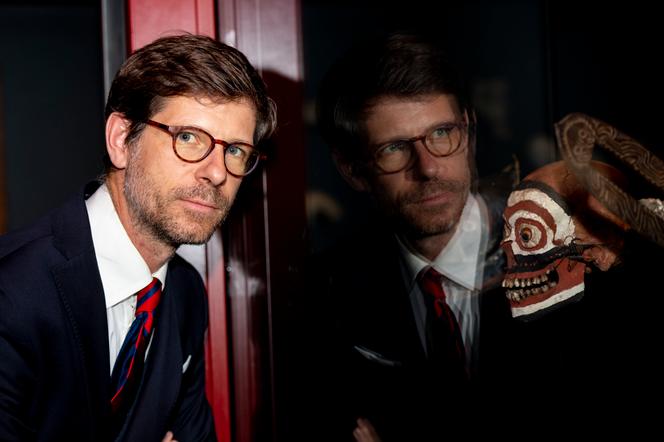


Philippe Charlier, 47, heads the Laboratoire Anthropologie, Archéologie, Biologie (LAAB), specializing in forensic anthropology, at the Université de Versailles-Saint-Quentin-en-Yvelines/Paris-Saclay. He is the chief curator of the exhibition "Zombies: Is Death Not an End?" at the Musée du Quai Branly-Jacques-Chirac, which offers a triple perspective, medical, archaeological and anthropological, on the history and practice of zombification in Haiti.
The first occurrence of the word "zombie" dates back to 1687, in the French book Le Zombi du Grand Pérou ("The Zombie of Great Peru"), but the character described in the book is actually a sorcerer. This is a semantic occurrence, but not an actual anthropological case of the zombie figure as we approach it in this exhibition. There's every reason to believe that as early as the 19th century – when the first freed slaves, known as "Maroons," were emancipated – there were already zombies. We remain cautious, however, as there are no written records from this period. The first documented cases we have date from the 1920s and 1930s. American novelist and anthropologist Zora Neale Hurston, and writer and explorer William Seabrook, both saw zombies in Haiti, and described and analyzed them.
Yes, the zombie emerges at the intersection of three things: the religions of sub-Saharan Africa, the transatlantic slave trade and the local traditions and knowledge transmitted by the Taino, Arawak and Caribbean peoples, present before the arrival of Europeans. These traditions were probably passed on to the Maroons who had escaped Western control, in particular the knowledge of poisons and plants.
In the strict anthropological sense, it's the act of condemning someone for having committed a reprehensible act within Haitian society. The main reason for zombification is the sale of land that doesn't belong to you. In the case of theft, the person can either be brought before a traditional court, which can take a very long time with no guarantee of success, or turn to a form of parallel justice by turning to a secret society specializing in justice, the bizangos. Seven times in a row, the person will be dragged off at night, into the countryside, the forest or a temple, and asked to explain himself, surrounded by fetishes. If, seven times in a row, they fail to prove their innocence, they will be sentenced to "a punishment worse than death."
You have 58.49% of this article left to read. The rest is for subscribers only.
